Tag: Video
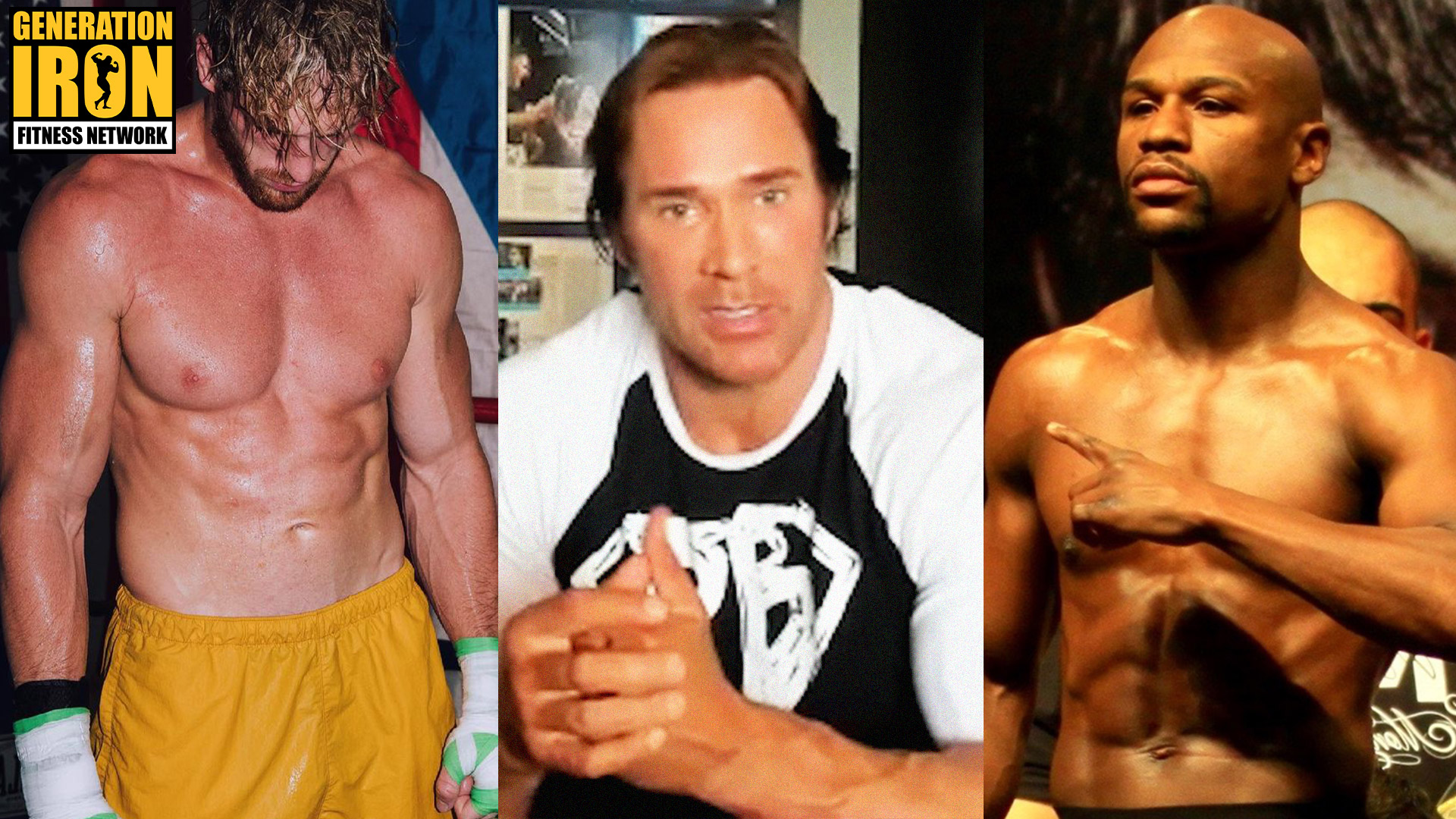
Mike O’Hearn: People Want To See Logan Paul Get His Ass Kicked… And He Knows It
Mike O’Hearn Answers: Is Logan Paul vs Floyd Mayweather bad for the sport of boxing?
With the Logan Paul vs Floyd Mayweather boxing match right around the corner, the controversial influencer has been making headlines again after an eventful press conference for the bout. Logan Paul as a public figure has been a hotly debated topic for years now. Is his success bad for the future of entertainment? And now more specifically, is his latest fight against Mayweather bad for the future of boxing? In our latest GI Exclusive interview, Mike O’Hearn weighs in on whether or not Logan Paul is a good or bad change for boxing.
The Logan Paul vs Floyd Mayweather boxing match is not the first of it’s kind. Not only has Paul been doing super exhibition PPV matches in the past, but there was also the UFC/boxing crossover of Conor McGregor vs Floyd Mayweather. These “super fights” fall outside the traditional norms of professional boxing. However, they also bring in massive amounts of interest and money. They are arguably more financially successful than real title matches in the sport.
Of course, popularity does not always equal quality. This is the main controversy behind Logan Paul’s entire career. Whether it’s boxing, YouTube, or any other place he appears – Logan Paul brings in massive views and massive money. But does it come at a cost? Does it diminish the credibility and quality of entertainment and sports?
We asked this question during our latest interview with Mike O’Hearn. Mike O’Hearn is a bodybuilder and public figure who’s familiar with controversy. He’s a bodybuilder who has consistently claimed to be all-natural. But the general bodybuilding public don’t believe he’s telling the truth due to his incredible physique. Not only that but O’Hearn is also a man who is familiar with building his own brand and personality beyond just being a bodybuilder.
[embedded content]
Check out our GI Exclusive segment with Mike O’Hearn above!
So what does he think of Logan Paul? His personality, love him or hate him, brings in attention. That attention creates massively attended events. That brings in money – which in turn can help bolster whatever industry Paul is engaging with. His latest, a boxing match against Floyd Mayweather – is set to potentially break records in terms of sales.
Mike O’Hearn sees no problem in Logan Paul’s tactics. While O’Hearn personally does not find Paul entertaining, he also sees the numbers. Most people enjoy watching Paul, either to “hate watch” him or because they are legitimate fans. Either way, Logan Paul is aware of this fact. He’s taking advantage of it. O’Hearn sees no problem in that.
Ultimately the success of Logan Paul relies 100% on his fans continuing to take an interest. He’s not forcing fans to enjoy his boxing crossover events. In that sense, it’s less Logan Paul that is the problem and more the audience. They decide what interests them. Right now, Logan Paul is the thing they want.
Mike O’Hearn goes on to mention that anything you can do to trigger society will always get attention. If you can monetize that attention, then you’re finding success in a tactic that always works.
Mike O’Hearn even relates Logan Paul, his success, and his controversy to modern bodybuilding.
“I said this to some old time bodybuilders that don’t have a big following on social media,” Mike O’Hearn states in our interview. He goes on:
“They’re like, ‘I won the titles, I won all of this, and I don’t get the respect I deserve.’ And it’s like – it’s the world that changes. You have to keep adapting. You have to keep moving with it. It’s the personality. Bruce Lee and Arnold [Schwarzenegger] made it because of their personality. If they were boring cardboard they wouldn’t have made it.”
You can see Mike O’Hearn break down his thoughts on Logan Paul and viral personalities in sports above. Check it out in our latest GI Exclusive interview segment!
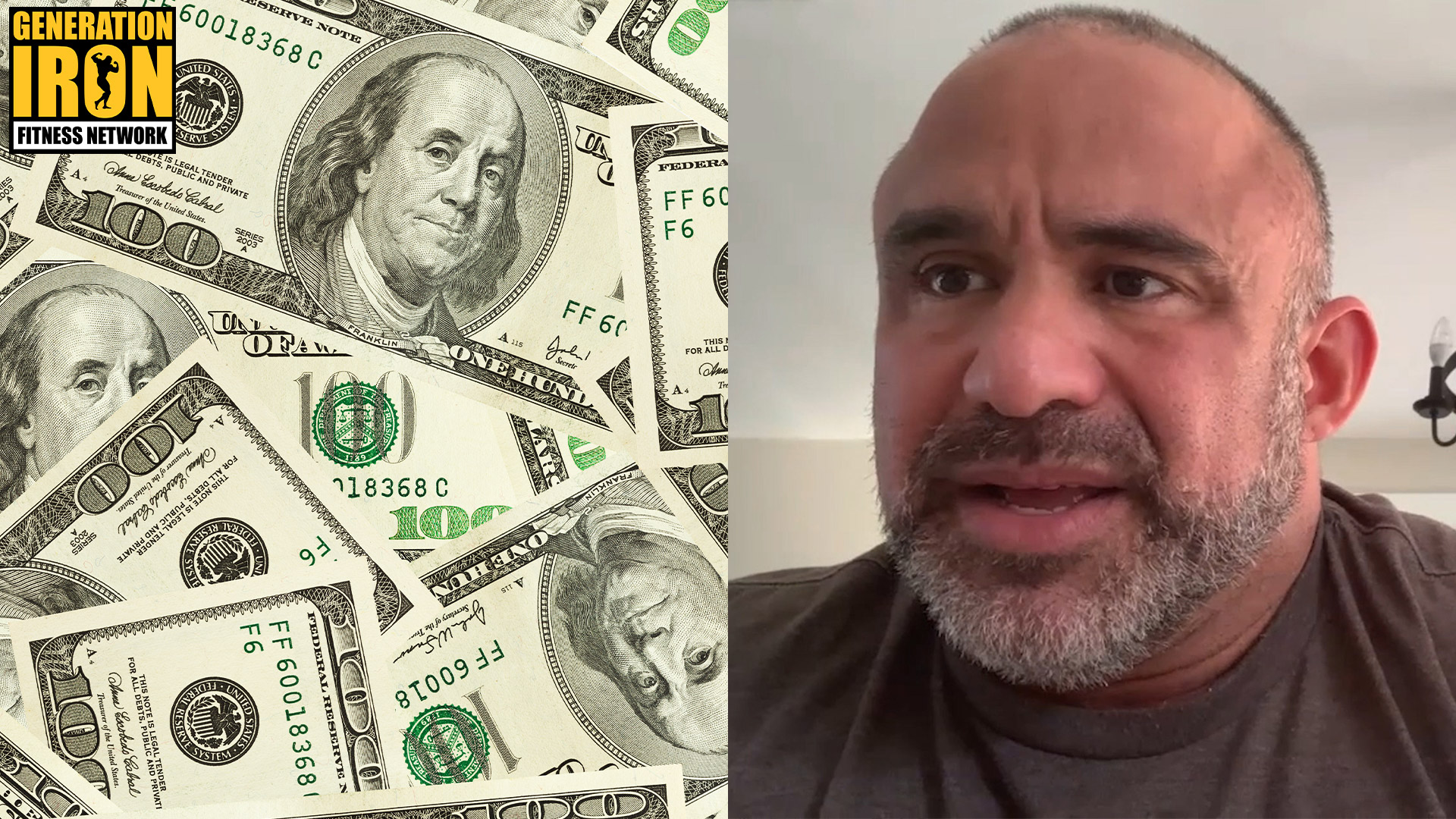
Jose Raymond: You Should Never Do Bodybuilding To Make Money
Jose Raymond’s advice to young bodybuilders: don’t become a bodybuilder for fame or money.
If you’re a fan of the sport, it’s common to celebritize the top athletes in the sport. Like any other sport, truly gifted athletes seem larger than life. They accomplish things that are impossible for most average folk. Since the inception of sports as entertainment this has allowed for famous athletes to bring in big money. Suddenly, you have fans who are inspired for partially the wrong reasons. They want to become a star athlete simply to become rich and famous. In our latest GI Exclusive, Jose Raymond shares his key advice to young aspiring bodybuilders. Don’t enter the sport for the money or the fame.
During our interviews and conversations with pro bodybuilders, we always make a point to ask them to share advice for aspiring bodybuilders. The star athletes of today are directly responsible for inspiring the star athletes of tomorrow. So any advice they can share could help shape the future of the sport.
So when we asked Jose Raymond to share his key advice – it was less about specific workout or diet tips. Instead, it was about the mentality behind the sport. His message – don’t become a competitive bodybuilder motivated by money or fame. His reason? Only a very small percentage end up getting that kind of achievement.
Now don’t let this be discouragement from Jose Raymond. Far from it. What Jose wants to express here is a message about passion. Bodybuilding requires an entire lifestyle shift. Whether you compete or not. Whether you succeed or not. You will need to eat, sleep, and train under the strictest of circumstances in order to shape and transform your body. Even if you become successful at it – if you don’t love the process, you will never be happy. It’s just that much of a sacrifice.
[embedded content]
Check out our latest GI Exclusive segment with Jose Raymond above!
That reality behind professional bodybuilding is this – pro bodybuilders don’t make the same kind of revenue overall as other bigger professional sports. That’s not to say there are some who bring in big fame and big dollars. But if you compare it to a sport like football, where even the least talented professional player will make big money simply for being on a pro team, it’s a whole different ballgame compared to pro bodybuilding.
Unlike many other sports, bodybuilders don’t get paid if they lose. You only win prize money for gaining a top placing. And even then, unless you win first place at one of the biggest shows, you won’t earn that much money. Yes, sponsorships and entrepreneurial opportunities can arise from pro bodybuilding. But that takes work in and of itself separate from the work of being a bodybuilder.
Which brings us back to Jose Raymond’s advice. Bodybuilding is hard work. It’s the kind of day in and day out hard work that can burn out many people. So his biggest advice is for a bodybuilder to truly be passionate about the grind and the lifestyle. The money may come and go. The fame may come or may never reach your lane. But if you’re passionate about the sport – none of that will matter. Bodybuilding, at its core, is about self change.
Yes, you can be competitive and want to achieve greatness. That’s the key to any professional competitive sport. But you should make sure to fall back on one thing behind that – passion for the lifestyle of bodybuilding.
You can watch Jose Raymond go into more detail in our latest GI Exclusive interview segment above!
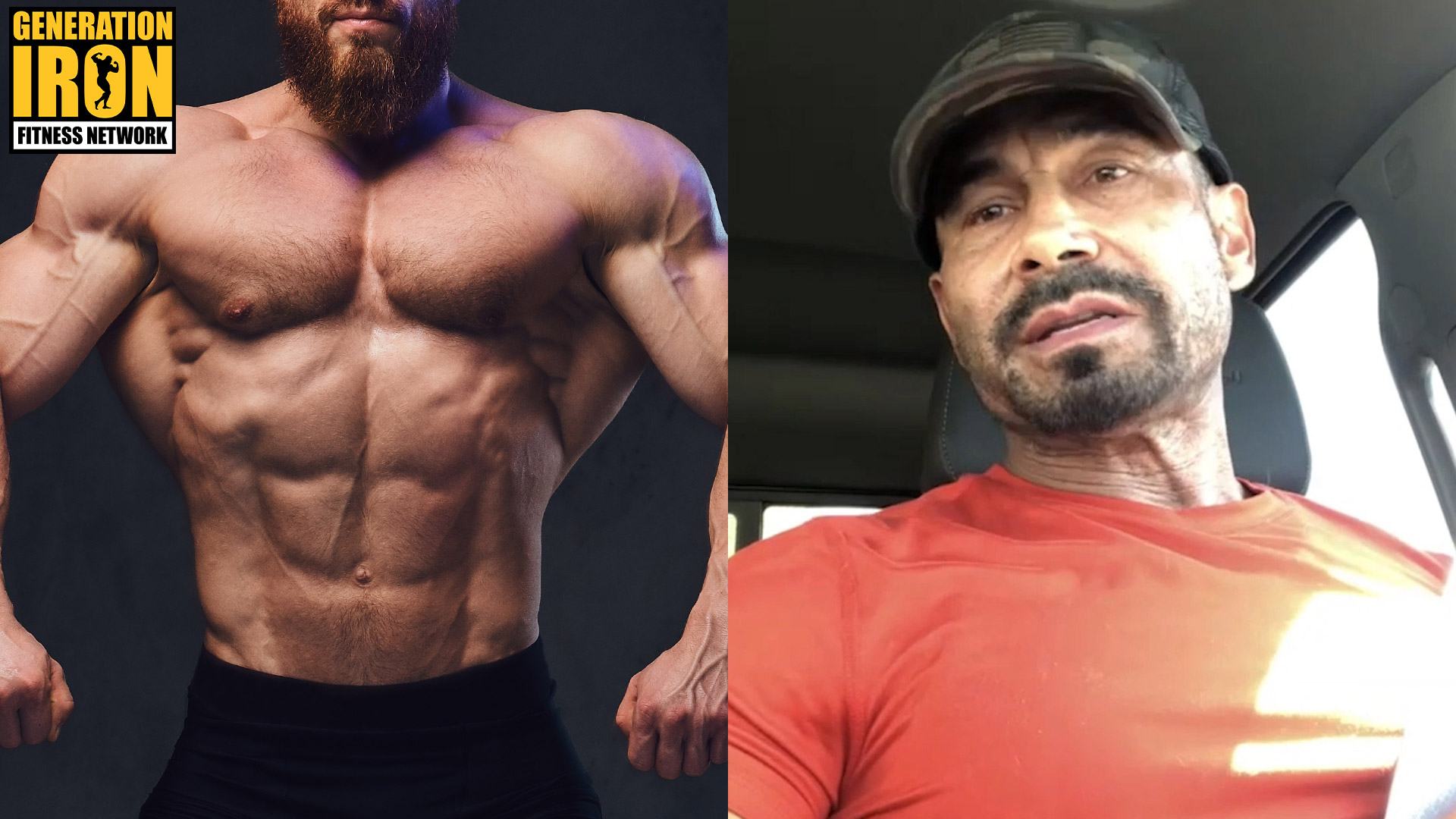
Danny Hester: Stop Calling Bodybuilding A Selfish Sport
Danny Hester debunks the persistent myth that bodybuilding and bodybuilders are inherently selfish
Danny Hester is a top level bodybuilder who has been around for a long time. He’s lived and competed through multiple eras of the sport, eventually earned an Olympia title, and trained numerous celebrities on the side. It’s safe to say that he has an in-depth perspective on bodybuilding over the past few generations. That’s why he is angered when people consider bodybuilding a selfish sport. Sometimes even bodybuilders themselves make this statement. In our latest GI Exclusive, Danny Hester explains why bodybuilding is not a selfish sport and how debunking this thinking can lead to more success for aspiring bodybuilders.
On the surface, bodybuilding on a pro level seems to be a passion of vanity. It’s about obsessing over each and every inch of your body and perfecting it. While that may be true, there is also a deep comradery and spirit between bodybuilders who compete in the sport. Not only that – but a bodybuilder is made up of a team – dietitians, trainers, and coaches.
This is the point Danny Hester wants to get across during our new video conversation. He is tired of people, even fellow bodybuilders, calling the sport selfish. Being a niche sport, Hester sees a true connection and togetherness among bodybuilders. Though he does understand where the “selfish” sentiment first came from.
Our discussion started off specifically discussing money in bodybuilding. How hard is it to make a living as a full time bodybuilder? Is it easier today than it was in the past due to online and social media? Ultimately, Danny Hester believes it evens out. It’s not better or worse – just very different.
[embedded content]
Check out our latest GI Exclusive segment with Danny Hester above!
So when it comes to bodybuilders leaving their hometowns, coming to California, and trying to start a life as a bodybuilder – it can be financially hard. This is where the selfish part comes into play. For bodybuilders starting out, the sport and lifestyle can seem selfish. The coast of supplements, gym memberships, and sacrifice in a traditional social life can all amount to an isolated life.
The reality, though, is that bodybuilding is a close knit community. When starting out and facing tough times – it might be easy to become isolated and see selfishness in the sport. So what Danny Hester wants young bodybuilders to know is this. Ask for help more than you do. Don’t be afraid to connect and put yourself out there with other bodybuilders. Don’t assume they all have it figured out because they look successful on social media.
Social media can be a trick. A classic, grass is always greener, scenario. The truth is behind the photos are more real lives with deeper problems than they are letting on. So Danny Hester wants to promote the comradery of bodybuilding. He wants to inspire young bodybuilders to connect more and see the non-selfish side of the sport.
It can be a real revelation. It can help bodybuilders from burning out. It can change the entire perception of bodybuilding at a time when it’s most important. Ultimately, it can make you a better bodybuilder.
You can watch Danny Hester go into more detail in our latest GI Exclusive interview segment above!
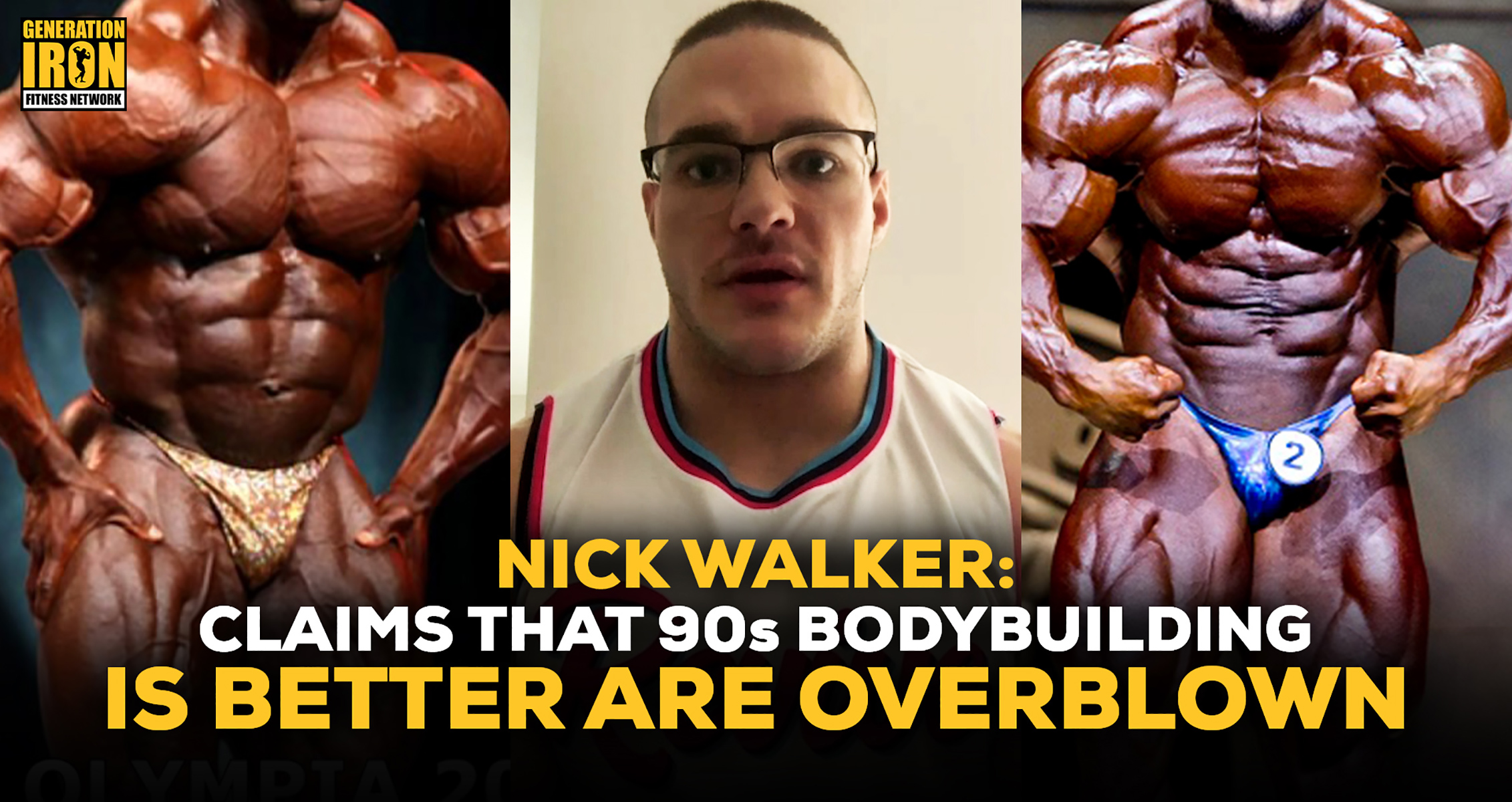
Nick Walker: Bodybuilding Bubble Guts Were Likely Just As Big Of A Problem In The 90s
Nick Walker reacts to the criticism against bodybuilding today vs bodybuilding in the 90s.
One of the biggest trends over the past year was the criticism of today’s bodybuilding physiques. While the criticism of bubble guts have been steadily rising over the past decade – it seems to have come to a head in 2019 into 2020. Beyond even bubble guts, many fans have decreed this new era of bodybuilders less impressive than the 90s and early 2000s. In our latest GI Exclusive interview, rising star Nick Walker explains how he thinks criticizing modern bodybuilding vs the 90s is unwarranted.
In the final few years before Phil Heath lost, fans criticized his lack of control of his midsection. Then after he lost to Shawn Rhoden and took a year off, fans and athletes criticized the conditioning of nearly the entire Olympia 2019 Men’s Open lineup. A narrative has been forming that today’s modern bodybuilders are not living up to the eras of the past. Particularly the 90s and early 2000s. We’ve been asking a variety of bodybuilders, coaches, and experts whether or not they agree in our GI Exclusive interviews.
Which brings us to our recent conversation with Nick Walker. A up and comer bodybuilder that rose to fame quickly due to his impressive physique and progress this year, Nick Walker is as modern as you can get in the sport. He’s a young athlete with incredible promise. So what does he think about the criticism of modern bodybuilding compared to the 90s?
Nick Walker finds this criticism overblown and unwarranted. But he has a reason for exactly why so many fans feel that there has been a decline in bodybuilding physiques. He finds it less to do with the athletes and more to do with how technology has changed the sport as a whole.
Specifically, he’s referring to social media, digital technology, and the internet in general. Back in the 90s, most fans only saw professional photographs of the athletes on stage. Perhaps they saw a broadcast on TV. There were rarely any behind the scenes photos. There was certainly no candid offseason gym photos. Most fans only saw athletes at their very best on the stage.
Today with social media, bodybuilders are able to give updates daily. Fans are able to snap photos on the fly and plaster them all over the internet. Even the leagues themselves can provide more up to date coverage and behind the scene looks at the athletes.
For the most part, this is fantastic, it provides more content for fans who are passionate about the sport. It allows bodybuilding as a whole to grow even bigger. But there is a downside.
That downside is a subconscious belief that bodybuilding has gotten worse – because they are seeing more angles of athletes on stage and because they see more behind the scenes shots that might appear unflattering.
Nick Walker goes on to discuss how many of the 90s bodybuilders had huge guts and looked soft and massive off season. They also might have showed more of those relaxed guts if the cameras took different side angles like the livestreams of Olympia today do.
You can watch Nick Walker talk about it in more detail by watching our latest GI Exclusive interview segment above.
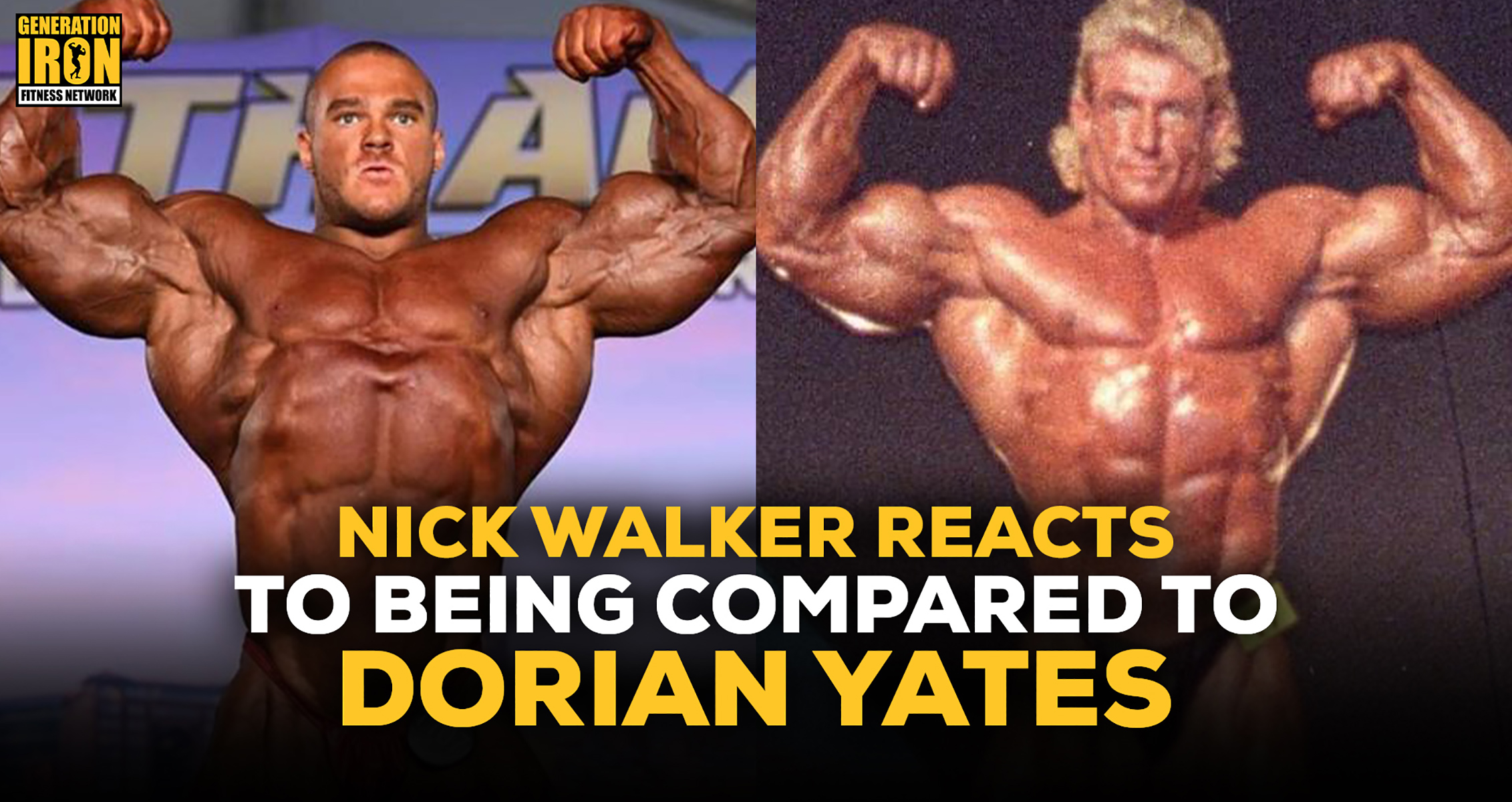
Nick Walker Reacts To Being Called The Next Dorian Yates
Nick Walker is on a fast rise into pro bodybuilding stardom. Does he feel the pressure?
Nick Walker seemingly came out of nowhere. Just over a month ago, Walker received his pro card by winning the NPC North American Championships on September 7, 2020. In that short amount of time, he has already set himself up to compete at the Chicago Pro in hopes of getting an Olympia qualification. If he wins, he plans to compete at the Mr. Olympia this year. His incredibly freaky physique has gone viral with his physique being favorably compared to Dorian Yates in his prime. In our latest GI Exclusive interview, Nick Walker reacts to his sudden rise to fame and being called the next Dorian Yates.
Typically, the same lineup of pro bodybuilders make it into the top spots at Olympia year after year. It’s the reason we only have 15 Mr. Olympia champions over the course of 55 years. Only a select few can become so great that they shine on the Olympia stage.
That’s why whenever a young bodybuilder turns head with a freaky physique, people instantly get excited. The prospect of a young bodybuilder rising through the ranks and threatening the status quo brings vibrant energy into the sport. A few of these bodybuilders come through every year, some of them become consistent top pros. Others fade swiftly.
Nick Walker is the latest bodybuilder to turn pro and instantly go viral and for good reason. His physique is nothing to slouch at. He has been dubbed the next hardcore freak in the sport similar to the links of Big Ramy when he first entered the public consciousness.
But the person Nick Walker is being compared most to is Dorian Yates in his prime. If you’re a young bodybuilder looking to become a superstar pro – that’s one of the greatest compliments you can receive.
We connected with Walker via video chat to dive into his bodybuilding origins and how he’s been reacting to the sudden viral attention he’s been receiving for his physique. Does this bring added pressure into his contest prep? Once an athlete is burdened with expectations – it can have large affects on how the world sees his next appearance on stage.
As of right now, Nick Walker is not letting the hype add pressure to his contest prep. He admits that he loves the hype but tries his best to not let it give him an inflated ego. Instead he uses it as excitement to further drive his passion. If he can prove the hype right, that’s the greatest gift he can give himself.
And what about being compared to Dorian Yates? For Walker, it’s simply a humbling experience. Walker goes on to explain that Yates was always one of his favorite bodybuilders growing up. He was part of the inspiration towards becoming a bodybuilder himself. So to hear his name in the same breath as Dorian is “unreal” as he heads towards his first pro show.
You can watch Nick Walker’s full comments in our latest GI Exclusive interview segment above.
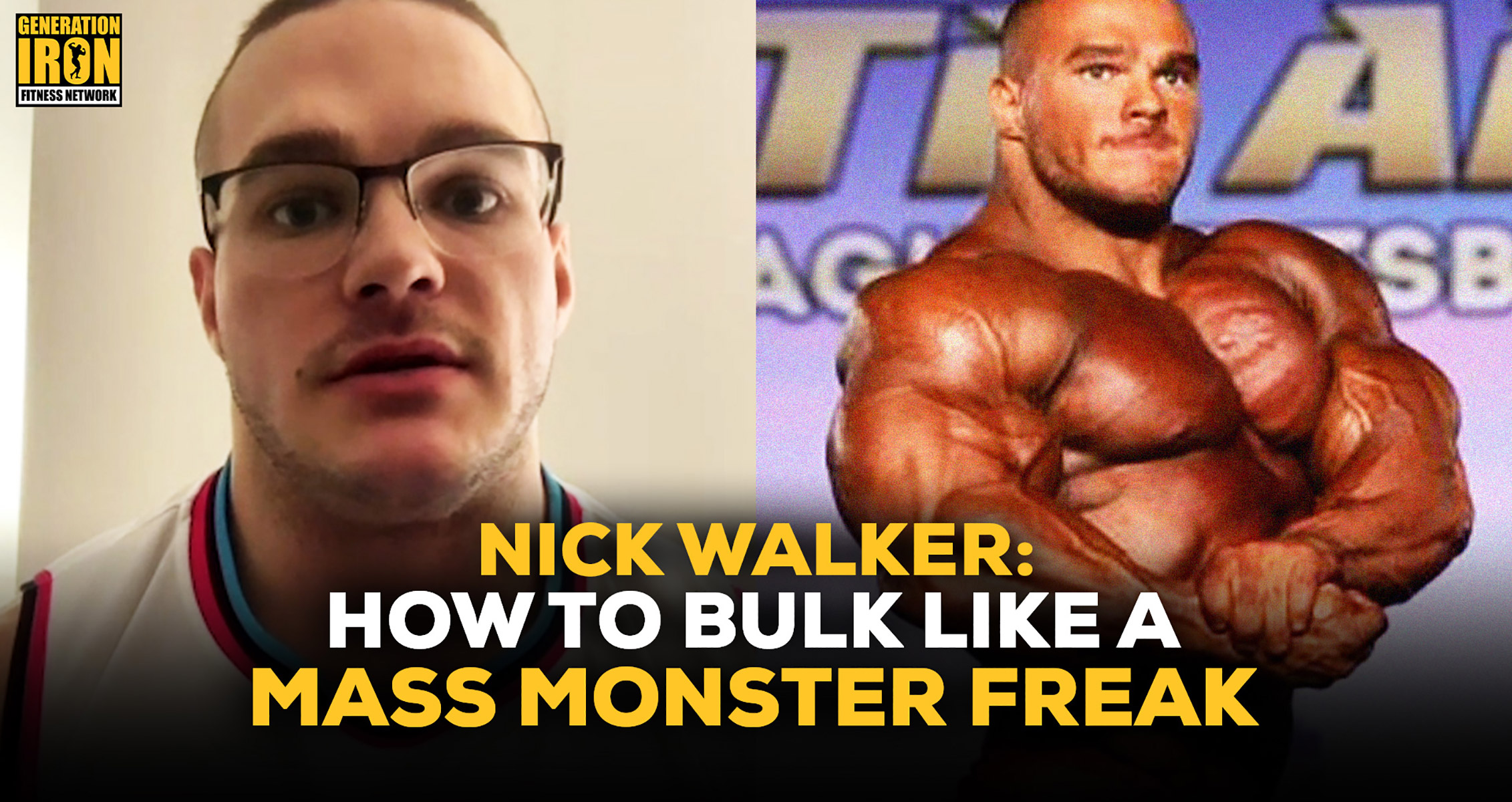
Nick Walker Details His Secret To Bulking Like A Mass Monster Freak
Nick Walker is known for his freakish massive size. Here he shares how to bulk up to mass monster levels without gaining too much fat.
Nick Walker has been turning a lot of heads this year in the bodybuilding industry. This is mostly due to his freakishly gigantic size. He’s bringing the kind of mass monster physique that is rarely seen in the industry. Think Big Ramy levels of size and you’ll have an idea of what Walker looks like when he steps on stage. What’s even more promising is his age. At only 25 years old he’s already showing impressive size. Just imagine what time will bring. In our latest GI Exclusive interview, Nick Walker shares insight into his daily routine and his secret to bulking up.
When it comes to bulking in bodybuilding – the biggest fear is putting on too much fat and not enough lean muscle. The last thing a bodybuilder wants is to appear too soft when he appears on stage. That’s why the cutting stage before a show is crucial. If you’ve put on too much fat, then cutting becomes more challenging.
We previously spoke with Fred “Biggie” Smalls about his tips for bulking up without gaining too much fat. But we wanted to get a well rounded opinion from different pros across the board. Nick Walker is a young pro bodybuilder that is building up hype due to his massive size. He’s nicknamed as The Mutant because he truly puts the freak factor into mass monster bodybuilding.
So what are Nick Walker’s tips for bulking up and not gaining fat? Nick Walker thinks it’s all about paying strict attention to your food intake. While that is vague and might seem obvious, Walker continues by using some specific examples. He mentions that a lot of bodybuilders eat way too much food after the compete in a show. They see it as the opportunity to treat themselves and have a little break. In Walker’s opinion, that break lasts too long for a lot of competitors.
Furthermore, Nick Walker rarely believes in indulging a cheat meal. While he very rarely will cheat on a weekend – he mostly doesn’t allow himself a cheat day at all. Instead he takes eating like a job and stays on a strict routine. He works with his trainer to monitor weight consistently to make sure all is going according to plan. But even beyond that, he works with his trainer to monitor how his physique looks.
The look of your physique can show telltale signs of what is happening to your body – even if your weight seems to be in the correct place. Every single week he has his physique look analyzed and then adjusts his diet accordingly. This is the important part. A bodybuilder must stay vigilant and adapt every single week. You can’t just pick a plan and follow it blindly for months expecting amazing results. It’s about tweaking constantly and adapting to how your body adjusts.
You can watch Nick Walker explain more of his daily diet and training routine in our latest GI Exclusive interview segment above.
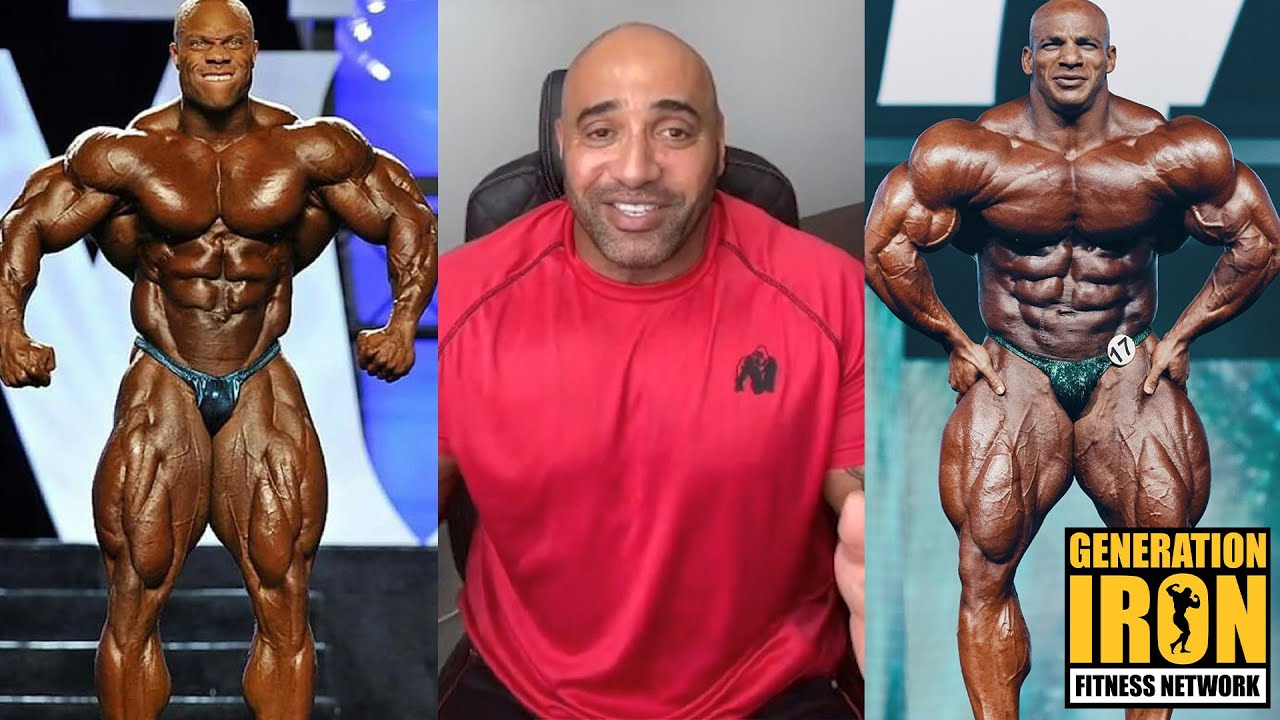
Dennis James Full Interview | Bodybuilding Conditioning Issues, Big Ramy, Phil Heath & More
Watch the full uncut GI Exclusive interview with Dennis James.
Dennis James isn’t a man who shies away from sharing his opinions on bodybuilding. In some ways, he’s like an unofficial analyst for the sport. He often gives us his immediate opinions on athlete physiques right after big shows. He also shares predictions on placings and his overall take on the goings on in bodybuilding.
That’s why we sat down for a long form interview to discuss in-depth all things bodybuilding. This interview was conducted before the Mr. Olympia 2020 and Big Ramy’s win. So it’s interested to see his predictions in comparison to what actually occurred.
Over the past few months we’ve released multiple GI Exclusive segments from our interview with Dennis James. Now we’re releasing the full length interview including topics such as the conditioning problem in bodybuilding today, Phil Heath’s legacy, Big Ramy’s future, and more!
Listen To Our Dennis James Interview On The Generation Iron Podcast
Our full length interviews are now also in podcast form! Subscribe to the Generation Iron Podcast for candid, full length interviews with the biggest names in bodybuilding, fitness, combat, and strength sports.
Listen to the full Dennis James interview here:
Dennis On How To Fix Pro Bodybuilding’s Conditioning Problem
Dennis James agrees that physiques have declined over the years. He also thinks there’s a clear cut solution to fix it. The judges need to start changing the way they award bodybuilders. James admits that the judges aren’t entirely at fault. They can only score the kind of physiques that are presented in front of them. But even if they aren’t originally at fault, they can help push for change more easily than simply waiting for the right athlete to turn the tide.
Dennis James believes that if the judges put together an official statement claiming that they would be rewarding conditioning over size – it would kick start athletes to change the way they prepare. Then the judges actually have to follow through and award someone like, let’s say, Dexter Jackson over a bigger sized mass monster. The combination of an official statement and a change in the nuances of judging competitions could lead to major shifts in the kinds of physiques we see on stage.
Dennis James also touches on a few more topics when it comes to the evolution of medicine science and how it effects bodybuilding. He debates with Vlad Yudin about the recent string of young deaths in the sport. James claims that while these deaths are tragic, it’s not due to some underlying drug abuse problem in bodybuilding. People sadly die young all across the world, statistically young bodybuilders would be affected by this for any wide number of reasons. Not just because of steroids or other PEDs.
[embedded content]
Check out our full GI Exclusive interview with Dennis James above!
Dennis Answers: Does Phil Heath Deserve To Be Considered Greatest Of All Time?
Phil Heath is a 7x Mr. Olympia champion. That puts him in the top pantheon of bodybuilders. It ties him with Arnold Schwarzenegger. It places him one behind on Ronnie Coleman and Lee Haney (who hold the world record for most Olympia wins). It even puts him above the six Olympia wins of Dorian Yates – a true mass monster legend in the sport. But when discussing the best athletes of all time in bodybuilding, you might find it hard for Phil Heath to be first on the list. Why is this?
Perhaps it’s simply because his victories are too recent. It’s easier to mythologize legends of the past and make them seem larger than life. Or perhaps it’s because Phil Heath was often criticized for his personality and demeanor as a champion. But those things shouldn’t really matter. What matters is his physique and his record.
That’s why when we talked with bodybuilder and guru Dennis James, we were happy to see him quickly place Phil Heath in his list of top five bodybuilders of all time. For James, it’s no question. Not only because of his Olympia wins, but also because of the look of his physique. To James, it’s undeniable that Heath holds a physique hardly any other competitor could match.
And yet, perhaps more than any other athlete, Phil Heath’s Olympia wins are often contested by fans. People often vocalized the many times that they believed Kai Greene should have won. And in Phil Heath’s later years, his stomach was criticized so much that people thought he should have lost way sooner than his seven Olympia wins allowed.
Wrap Up
As we mentioned at the top, Dennis James is always blunt, honest, and in-depth with his opinions on all things bodybuilding. So there are far many more topics than discussed in this article. That’s why you should watch the full GI Exclusive interview above!
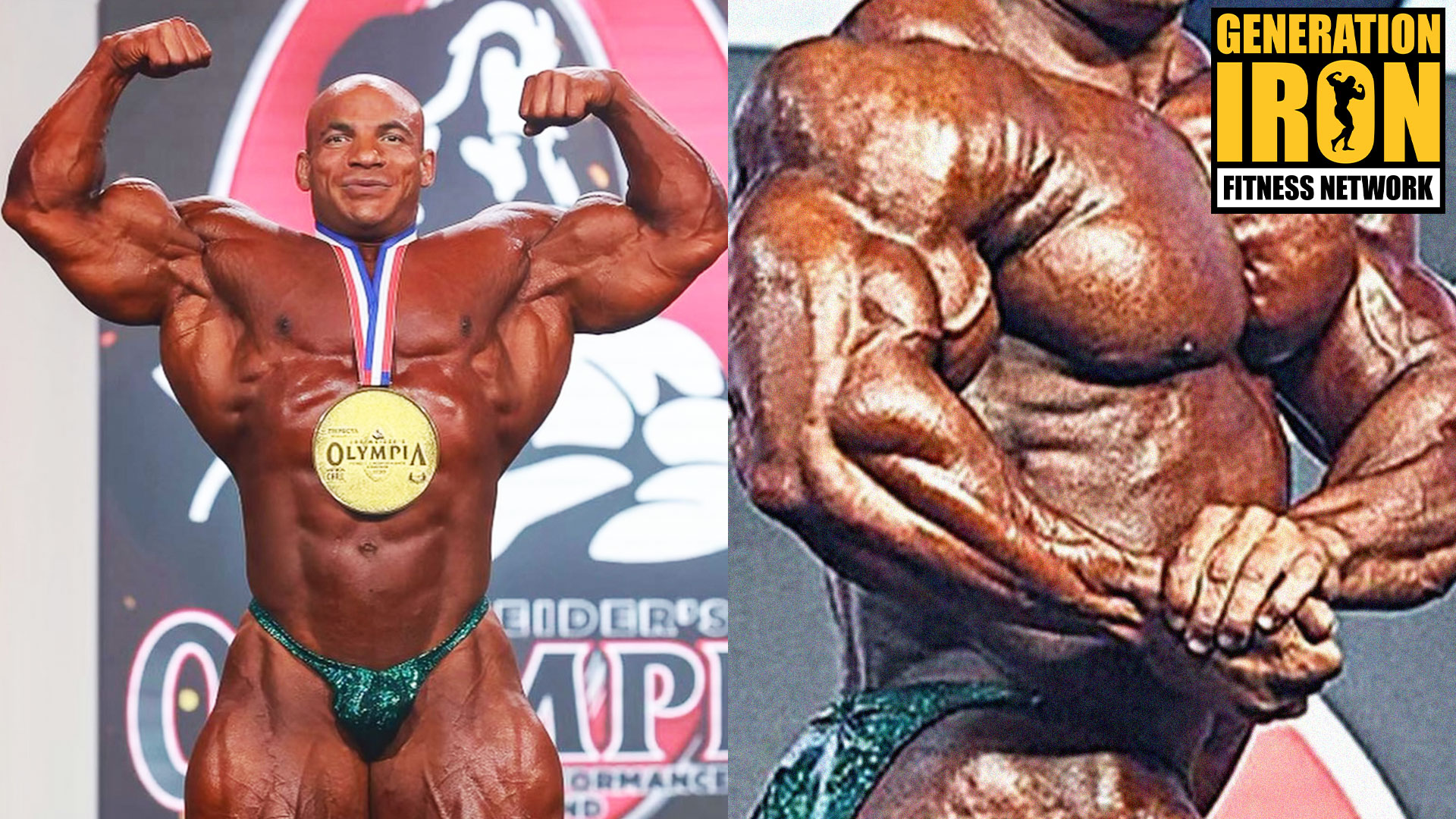
Do You Need To Be A Fan Of Bodybuilding To Be A Bodybuilder?
Is it possible to be a passionate pro bodybuilder but not be a fan of the sport?
Competitive bodybuilding isn’t something you just pick up as a hobby. It’s a lifestyle that changes every single aspect of your being. Every single habit and every choice you make goes through the lens of bodybuilding. Since bodybuilding is so focused on the self – it brings up the question – do you have to be a fan of the sport in order to be a competitive bodybuilder? In our latest GI Exclusive interview, we asked that very question to Jamie LeRoyce McTizic – who went through long stretches of hating bodybuilding as he continued to compete.
Jamie LeRoyce McTizic has already detailed his rollercoaster of a career in bodybuilding. He became pro all natural, then turned towards steroids to improve his game, this led to a downward psychological spiral that nearly destroyed him. It also destroyed his love of bodybuilding as a fan. At least for a short period of time. He eventually regained stable footing, went all natural again, and returned to competing in the IFBB.
This entire experience made us wonder – do you have to be a fan of bodybuilding to be a pro bodybuilder? The experience of being a bodybuilder can often be isolated and lonely. There are also many people who focus on building a sculpted physique but avoid the sport all together. So if you actively compete – can you also not be a fan?
We asked this question to Jamie LeRoyce McTizic and he answered honestly from his own experience. “Absolutely, I’m a bodybuilder without being a fan of bodybuilding,” Jamie stated in our interview.
“I like the bodybuilding process. I like the process personally of building the muscle and… what you learn from it. People’s different aspects of how they lifted. And I really liked what Arnold Schwarzenegger and Ronnie Coleman had to say… I was a fan of theirs and their training styles. But as far as bodybuilding as a whole and watching it. It was never really like that for me.”
[embedded content]
Check out our latest GI Exclusive segment with Jamie LeRoyce McTizic above!
Jamie LeRoyce McTizic makes a specific but vital distinction here. He is not a fan of the sport. As in, watching the competitions, going to the expos, or caring about who wins and who loses. But he is a fan of the process and learning how to improve that process. He can be a fan of Arnold Schwarzenegger or Ronnie Coleman – without caring about how many Mr. Olympia titles they won.
In fact, perhaps it’s harder to be a fan of bodybuilding while you are actively competing. The desire to improve and the desire to win might take the fan experience away from the sport. The person is now an athlete competitor – not a fan. The amount of extreme focus and dedication might suck the enjoyment out of simply being a fan.
Of course, this is certainly not true for all bodybuilders. But Jamie LeRoyce McTizic brings up interesting points that are rarely talked about. Bodybuilding is a discipline beyond simply being a sport. If a person is passionate about sculpting their physique – that doesn’t mean they are passionate about the sport overall. Perhaps they only compete because it’s a way of making a living doing what they love.
You can watch Jamie LeRoyce Mctizic go into more detail by watching our latest GI Exclusive interview segment above!
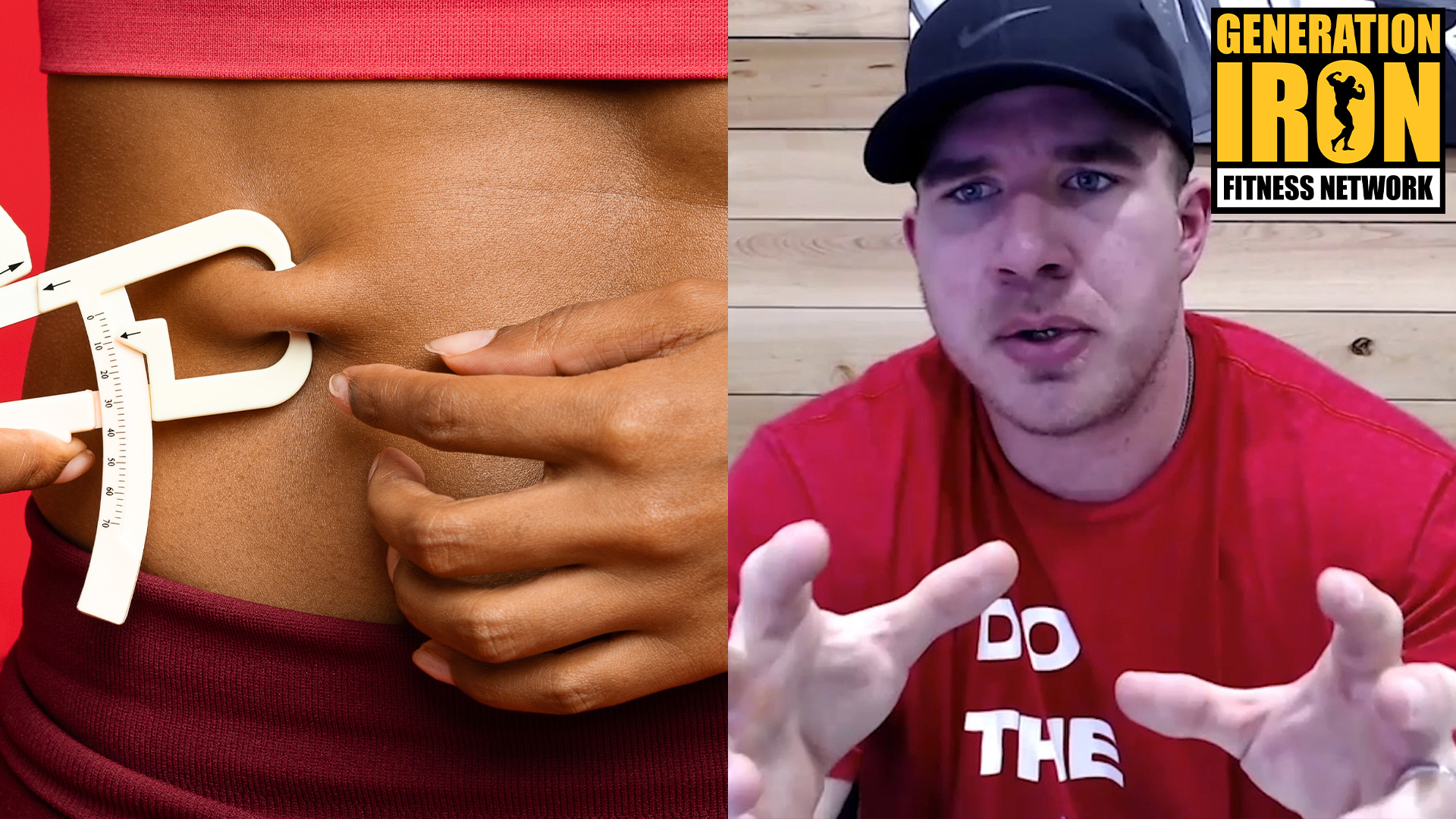
Matt Jansen: The Real Way To Burn Stubborn Fat Areas Without Ruining Strong Points
Matt Jansen shares the brutally honest truth behind the myth of spot reducing stubborn fat areas.
Losing weight can be hard. It can become especially hard when you’re trying to build up muscle and maintain a sculpted physique at the same time. Each body is different. We are all familiar with having trouble areas. Spots on the body that carry more weight than the rest. How do you spot reduce those fatty areas without burning too deep into your muscle tissue? In our latest GI Exclusive interview, trainer Matt Jansen debunks the myth of spot reducing stubborn fat and how to really bring in trouble areas.
You’ve likely seen headlines and ads online all the time that claim to provide the secret to spot reducing stubborn fatty areas on your body. Whether it is a supplement promising a cure or simply a certain workout – the myth of spot reducing fat has persisted for decades.
Unfortunately, here’s the real truth. There is no way to spot reduct stubborn fat areas. It is physically impossible to target certain points of the body to burn stubborn fat. Crunches do not burn more fat in your stomach. Specific diets cannot hold the secret to burning fat in problem areas.
The general truth is this – when you burn more calories than you consume, you will lose fat. Since every body is different genetically – some areas might take longer to lose fat than others. But if you stay persistent, it will all drop off eventually.
[embedded content]
Check out our GI Exclusive with bodybuilding coach Matt Jansen above!
When it comes to bodybuilding, however, this poses an interesting challenge. What happens if a bodybuilder has strong areas of their physique but carry extra fat in other specific problem areas? How do you burn stubborn fat without diminishing the hard earned muscle and taper?
We asked Matt Jansen this very question during our video interview. As we mentioned, he makes it very clear that you cannot target fat loss in certain areas. So if an athlete has a problem area, Jansen’s tactic is to plan a longer period of dieting leading up to a competition.
As Matt Jansen explains it, if a bodybuilder doesn’t carry fat evenly, then it’s a delicate balancing act to burn off fat in the problem areas and keep strong areas on point. This balancing act will be trial and error. That’s why a bodybuilder should plan a more extended time than usual during contest prep dieting.
This additional time allots for the athlete to cut fat from the problem areas and also then work on fixing any strong areas that might have been diminished through the fat loss diet plan. It’s almost like balancing a scale. You fall too much to one side, so now you put more weight on the other. Then it teeters too far to the other side, so you keep balancing until it evens out perfect.
Unfortunately, this simply requires more time and effort to accomplish. That’s the rub when it comes to having “less ideal” genetics. More work, consistency, and time need to be put in to perfect the athlete’s physique.
You can watch Matt Jansen talk in more detail about burning stubborn body fat in our latest GI Exclusive interview above!
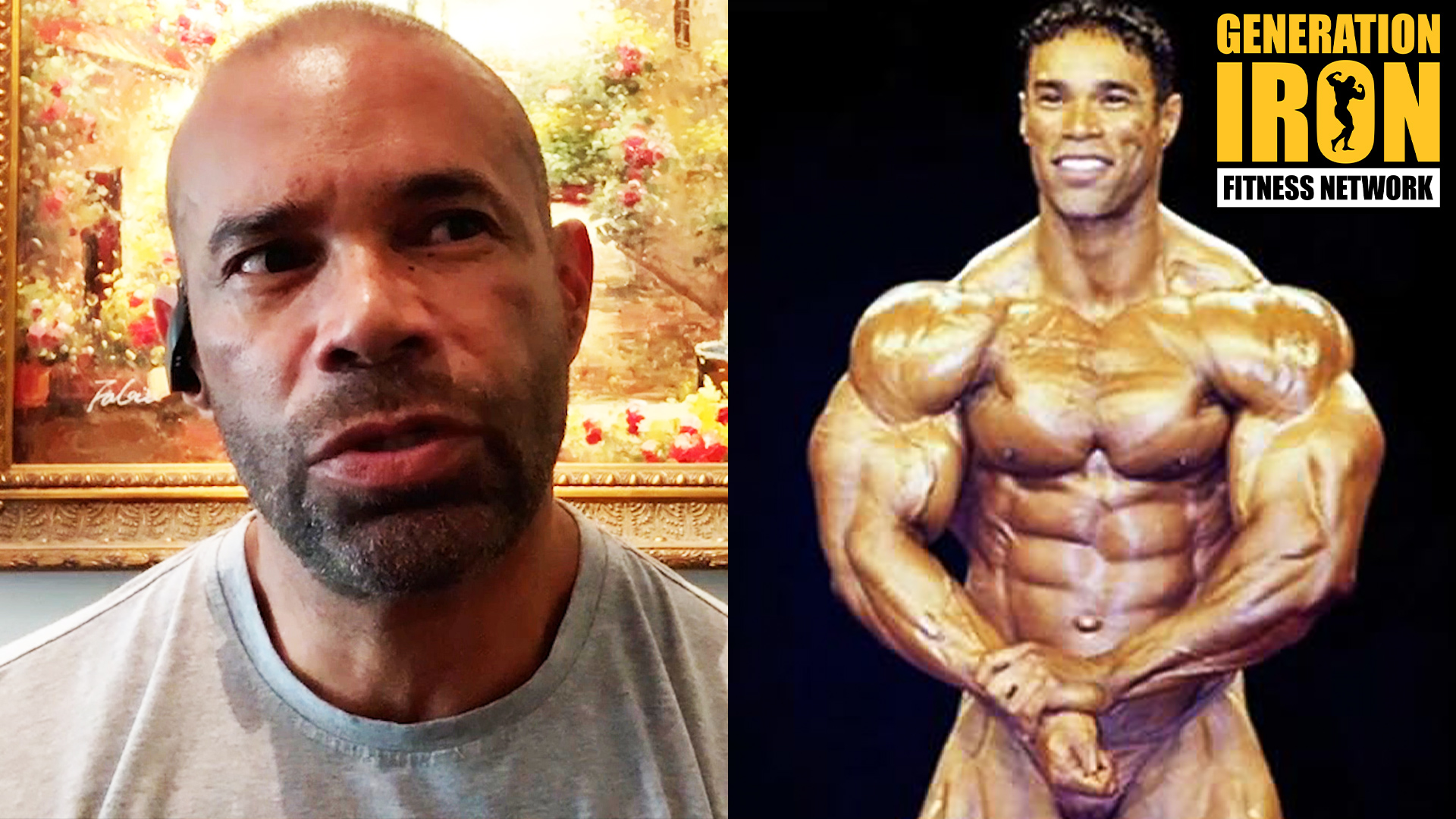
The Reason Kevin Levrone Drank Jack & Coke And Improvised Posing Routines At Shows
Kevin Levrone describes his unusual tactic for “feeling the mood” just moments before competing on stage.
Kevin Levrone is known for being one of the best bodybuilders of the 90s and perhaps even of all time. Beyond his impressive physique, part of his fame came from his stellar posing routines. Bodybuilders traditionally practice their posing routine for weeks on end. But Levrone would completely improvise his posing. He didn’t even pick his music until just minutes before stepping on stage.
That tactic might seem reckless. But Kevin Levrone put extreme importance on “feeling the mood” of the audience and the venue location. Syncing in to that mood would help him elevate his posing routine. It’s likely part of what made him so legendary to this day. In our latest GI Exclusive interview, Kevin Levrone goes into detail about his last minute posing routines and his tactics for connecting with the audience.
During our video conversation with Kevin Levrone, we touched briefly on the topic of alcohol and bodybuilding. Can a bodybuilder drink alcohol and be successful on a pro level? This question quickly spiraled into an interesting discussion about Levrone’s posing routines and his tactics on the night of a competition.
Kevin Levrone admits that he never prepared his posing routines in advance. In fact, he would bring multiple tapes of music and not submit them until just moments before he stepped on stage. The reason? He wanted to “feel the mood” of the audience and the venue location.
[embedded content]
Check out our latest GI Exclusive with Kevin Levrone above!
This is where the alcohol comes in. By no means did Kevin Levrone drink alcohol as part of his regular bodybuilding diet. But on the night of a show, he would make himself a Jack and Coke backstage. Levrone states that this was simply to help loosen him up. This, in turn, would help him feel out the vibe being emitted from the audience.
Kevin Levrone believes that every single competition venue has a different atmosphere and feeling. Vegas is different than New York. New York is different than a competition in Europe. Each night is different due to the energy of the audience. Levrone wanted to tap into that energy so he could be fully in-sync with the judges and the crowd.
So Kevin Levrone would make himself a Jack and Coke, relax, and feel the vibe. He would bring multiple tapes of music and then decide his song last minute based on that vibe. This would often get him in trouble and even fined for submitting his music so late. But to Levrone, this was a small price to pay to elevate his routine to the next level.
This tactic is quite different than the usual messaging you receive from pro bodybuilders. Posing is certainly important. It can create an illusion through angles and flexing that makes your physique look even more impressive that it really is. This vital when being judged.
Due to this, many pro bodybuilders stress the importance of consistent training and practicing of posing routines before a show. While Kevin Levrone most likely still practiced his mandatory poses – his improvised posing routines seemed to give him an edge. Living in the moment helped showcases his physique more than prepping in advance and getting too stuck in his head.
Of course, that’s simply what worked for Levrone. It’s part of what makes him a rare and legendary athlete in the sport. It’s not a tactic that might work for everyone. It might not even work for most.
You can watch Kevin Levrone go into full detail about his competition tactics in our latest GI Exclusive interview segment above!
